New films from Hong Kong claimed the spotlight at the 24th Far East Film Festival in April, and are now on a tour spanning three continents. Harry Robinson was in Italy to witness the grand send-off.
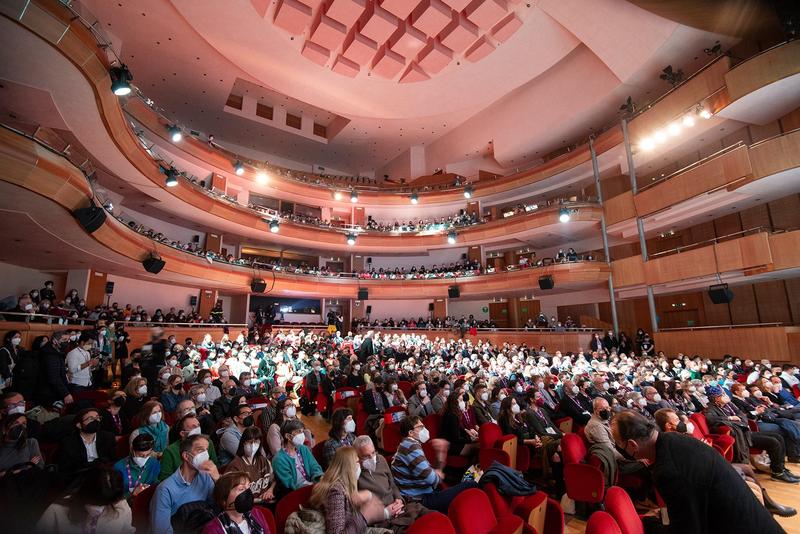 The auditorium at the Far East Film Festival in Udine, Italy. (PHOTO COURTESY OF FAR EAST FILM FESTIVAL)
The auditorium at the Far East Film Festival in Udine, Italy. (PHOTO COURTESY OF FAR EAST FILM FESTIVAL)
The Making Waves – Navigators of Hong Kong Cinema road show was launched at this year’s 24th edition of the Far East Film Festival, held annually in the Italian city of Udine. Beginning a global tour that will take in more than a dozen cities across three continents, Making Waves aims to showcase a diverse selection of contemporary Hong Kong cinema — and remind the world of the filmmaking talent the city boasts.
Udine proved a fitting stage, from April 22 to 30, at a festival that has championed the cause of commercial Hong Kong cinema across 24 editions — alerting the world to the talents of everyone from Johnnie To Kei-fung to Stephen Chow Sing-chi.
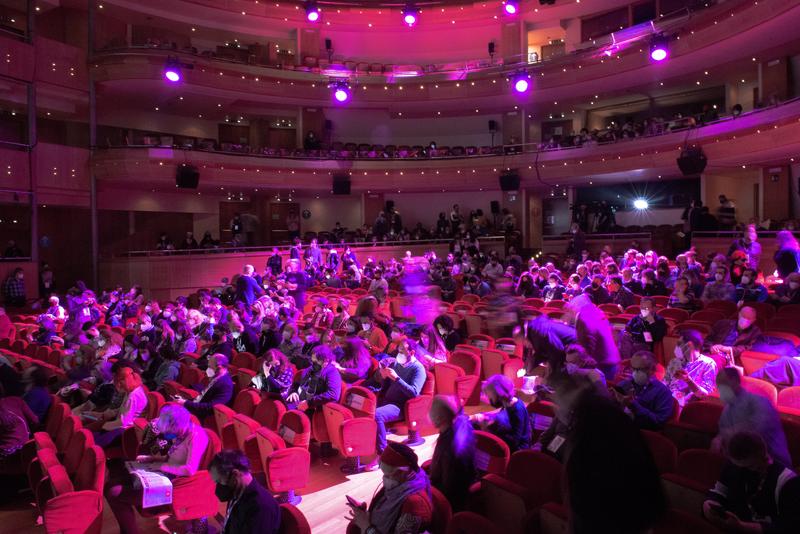 The auditorium at the Far East Film Festival in Udine, Italy. (PHOTO COURTESY OF FAR EAST FILM FESTIVAL)
The auditorium at the Far East Film Festival in Udine, Italy. (PHOTO COURTESY OF FAR EAST FILM FESTIVAL)
“The first time we staged a festival, the whole program was from Hong Kong, and we have invited many friends from the city here over the years,” explains FEFF head Sabrina Baracetti. “We see ourselves as the place where the world gets its first look at what the city’s filmmakers are producing, and this year’s program from Hong Kong was exciting — as it always is.”
The Making Waves lineup has been curated by Create Hong Kong in partnership with FEFF, with the support of the Hong Kong Economic and Trade Office in Brussels as it marks the special administrative region’s 25th anniversary. The 13 films selected for Udine spanned everything from the zany, high-camp action-fantasies of the 1990s, such as To’s The Heroic Trio (1993) and Executioners (1993), to exciting new horrors, comedies, love stories, family dramas, and even a documentary.
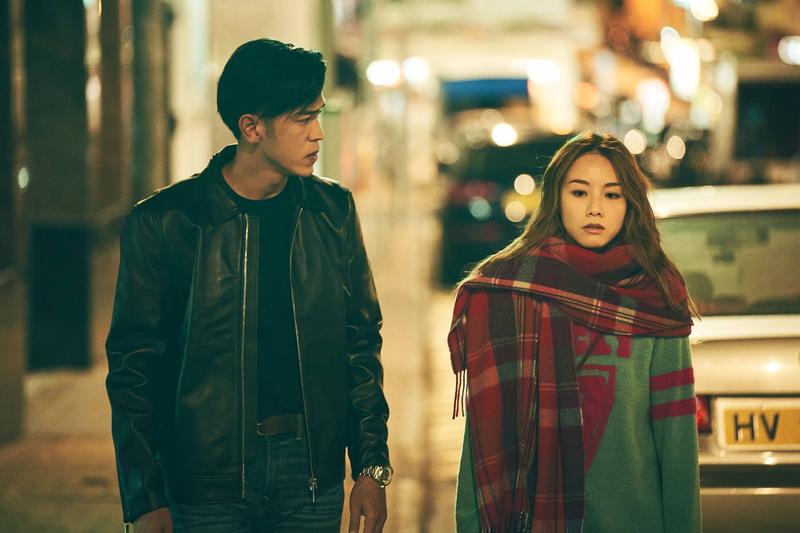 Edward Ma Chi-wai and Stephy Tang Lai-yan in Twelve Days. (PHOTO COURTESY OF FAR EAST FILM FESTIVAL)
Edward Ma Chi-wai and Stephy Tang Lai-yan in Twelve Days. (PHOTO COURTESY OF FAR EAST FILM FESTIVAL)
Comedy and tragedy
A standout appearance in Udine was made by singer and actress Stephy Tang Lai-yan, who starred in two of the films on this year’s program — Twelve Days (2021) and Table for Six (2022). Aubrey Lam Oi-wah’s Twelve Days is a good example of how Making Waves, and Hong Kong filmmakers in general, are reflecting on the past 25 years, the film being a response of sorts to Lam’s 2000 directorial and screenwriting debut, Twelve Nights, starring Cecilia Cheung Pak-chi and Eason Chan Yick-shun.
Picking up on the themes of doomed relationships and miscommunication 22 years later, it seems Lam’s perspective on romance hasn’t changed. “I think (Lam) doesn’t quite believe in relationships,” says her lead actress.
The film demanded a heartrending performance from Tang and she doesn’t disappoint. This devastating romantic drama showcases Hong Kong acting talent at its best, with Tang and co-star Edward Ma Chi-wai taking up the mantle from their early-2000 counterparts as some of Hong Kong cinema’s emotional heavy hitters.
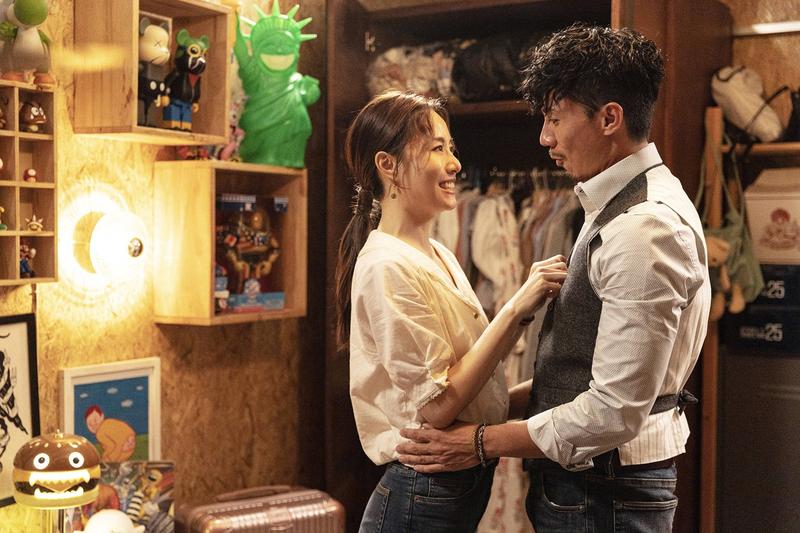 Stephy Tang Lai-yan and Louis Cheung
Kai-chung in Table for Six. (PHOTO COURTESY OF FAR EAST FILM FESTIVAL)
Stephy Tang Lai-yan and Louis Cheung
Kai-chung in Table for Six. (PHOTO COURTESY OF FAR EAST FILM FESTIVAL)
At the opposite end of the spectrum for Tang was Table for Six, an ensemble comedy that had its world premiere at FEFF after its release was delayed due to COVID-19. Despite the contrast between the two roles shown at the festival, Tang deftly navigated Table for Six’s more theatrical writing style, which involved long dinner-table scenes requiring takes of up to 10 minutes.
One of Tang’s strongest motivations to give her best as an actress is to see Hong Kong cinema thrive, globally and locally. “Hong Kong is a very small place, but we have big, big dreams,” she says.
“I want more people to watch Hong Kong films, and to know how hard we are working. It was touching to see so many people applaud our films and laugh. So I’m very happy; this has been amazing.”
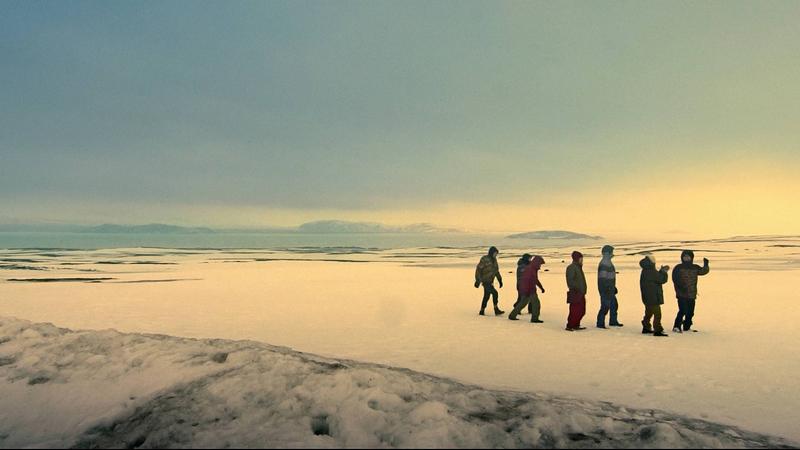 Young Hong Kong musicians are transplanted to Iceland in Finding Bliss: Fire and Ice. (PHOTO COURTESY OF FAR EAST FILM FESTIVAL)
Young Hong Kong musicians are transplanted to Iceland in Finding Bliss: Fire and Ice. (PHOTO COURTESY OF FAR EAST FILM FESTIVAL)
Joy ride
Hong Kong’s offerings at Udine did not stop at narrative fictions. Interviewed about her documentary Finding Bliss: Fire and Ice – The Director’s Cut (2022), actress and singer Josie Ho Chiu-yi says the experience was “really transformative” for the group and herself.
This was a novel documentary project led by Ho, and directed by Kim Chan Chi-yung and Dee Lam Ming-hon. Ho and the documentary team decided to take a group of young musicians from Hong Kong to Iceland. The documentary explores the transformative potential of “play”, and follows Hong Kong actor and comedian — and the project’s creative director — Jim Chim Sui-man’s masterful practice as he leads the group through theatrical exercises designed to undo some of the accumulated stresses of city life.
Ho noted the difference in her own band, Josie Ho & the Uni Boys, in their very first show after returning from Iceland. During the show in Taiwan, the previously low-key musicians performed “like they had some spark or some electric, some crazy energy”, she adds.
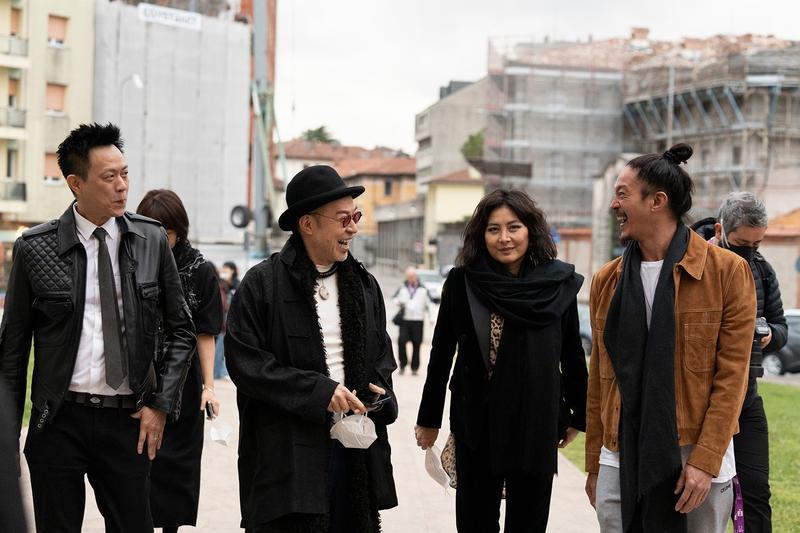 Kim Chan Chi-yung, Jim Chim Sui-man, Josie Ho Chiu-yi and Conroy Chan Chi-chung at FEFF 2022. (PHOTO COURTESY OF FAR EAST FILM FESTIVAL)
Kim Chan Chi-yung, Jim Chim Sui-man, Josie Ho Chiu-yi and Conroy Chan Chi-chung at FEFF 2022. (PHOTO COURTESY OF FAR EAST FILM FESTIVAL)
What fundamentally drove the documentary team was the importance of discussing mental health, a topic the film addresses with great depth, sensitivity and optimism. Meanwhile, Conroy Chan Chi-chung from 852 Films, which produced the documentary, said bringing the film to festivals like FEFF helped make the funding and production process feel worth the effort, and that the positive reception the film received pointed to opportunities for the team’s future projects. Even word spreading that the film was screening in Udine had a positive effect, he said.
“We were in London just a week before (Udine),” Chan recalls. “And since then, all of a sudden, people heard about us coming to Udine to show our documentary, and all these documentary companies were coming up to us and asking, ‘Do you want to produce this?’ There were some really great projects there that showed personalities and people — their personal sides and the mental side of how people work. So there are definitely opportunities.”
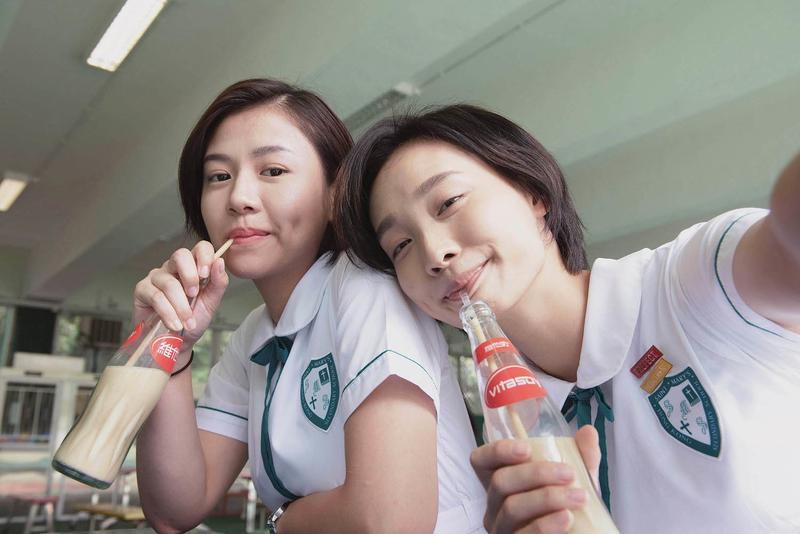 Renci Yeung Si-wing and Hedwig Tam Sin-yin inThe First Girl I Loved. (PHOTO COURTESY OF FAR EAST FILM FESTIVAL)
Renci Yeung Si-wing and Hedwig Tam Sin-yin inThe First Girl I Loved. (PHOTO COURTESY OF FAR EAST FILM FESTIVAL)
Circling back
Yeung Chiu-hoi, co-director of The First Girl I Loved (2021), points out the benefits FEFF provides for Hong Kong directors as a platform where “because of cultural differences, we can learn from other filmmakers, (via) their experiences”.
Yeung and co-director Candy Ng Wing-shan’s directorial debut is a coming-of-age film about a girl who falls in love with her classmate amid the strict, traditional setting of an elite Catholic girls’ school. Drawing inspiration from mainland and Taiwan youth movies from 2013-15, Yeung aimed to create something that spoke to his own generation, from the time he and Ng were in high school, back in 2000-03.
Of course, this time period overlapped with the outbreak of SARS, so the film bridges Hong Kong’s past and present through the image of students wearing masks as they sit a public examination. This is “the main image we wanted to put in our film”, says Yeung, who used it to anchor the story within a memorable point in Hong Kong’s history and reconnect with that early-2000s generation.
While Hong Kong missed out on FEFF’s main awards this year — they went to the Korean romantic drama Miracle: Letters to the President (2021), directed by Lee Jang-hoon; and the stark and romantic, mainland festival favorite Li Ruijun’s Return to Dust (2022) — the Making Waves program was an eclectic and inspiring selection of film offerings from the city’s past and present.
Harry Robinson attended the Far East Film Festival as part of the 2022 Campus program for aspiring writers and critics.


